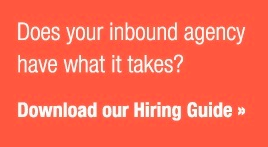If this were a perfect world, every client company that works with a solar ad agency will have established metrics to measure the health of their relationship before signing the dotted line. Unfortunately, we live in an imperfect world.
 In fact, many outsourced agency relationships sour not because the agency fails to execute, but because proper expectations were never set at the outset of the arrangement. What may be considered “success” to the agency may be considered a “failure” to the client who was expecting more than what was delivered.
In fact, many outsourced agency relationships sour not because the agency fails to execute, but because proper expectations were never set at the outset of the arrangement. What may be considered “success” to the agency may be considered a “failure” to the client who was expecting more than what was delivered.
Therefore, the easiest and most effective way to ensure that your solar ad agency is tracking ROI is to establish a process in your agreement. While this process will vary by agency, it should include two major components: the metrics that will be measured, and the frequency with which the agency will measure the metrics.
To the first point, you'll want your ad agency to tackle high-level and tactic-specific metrics. By “high-level” metrics we mean things like website CTRs, referrals, “Likes” on Facebook and other barometers of social media reach, and generated leads. The degree to which these metrics are measured depends on who is running what process. For example, your solar agency may launch a Facebook ad campaign. They'll have access to your Facebook account, but then again, so will you. Therefore, you can both check the performance on these types campaigns.
This brings us to tactic-specific metrics. Much like the Facebook ad example, you may outsource a one-time tactical campaign like an eBlast offering a free consultation to an agency. In such cases, the client company may have minimal input in the composition, execution, and measurement of the eBlast. As a result, your team probably won't tinker "under the hood." Instead, the agency may simply send over an analytics report looking at the success of the eBlast.
Then there are ad campaigns where both you and your agency have a measurement role. One example is a print campaign that directs viewers to a web site created solely for the purpose of this special solar offer. If this site resides within your company's primary domain, you can track stats and other metrics using platforms like Google Analytics.
Now that you've established what metrics to track and how to track them, the next questions surrounds measurement frequency. Again, there's no hard and fast rule here; instead, we encourage you to try and come up with a healthy balance between too much and too little reporting frequency. Once again, if you have access to things like your Google Analytics platform, you can track performance whenever you'd like and without agency intervention. On the other hand, if the agency's on the hook for providing you with specific metrics, create a delivery schedule that's attuned to your business operations and budgeting needs.
In most cases, the reporting should be somewhat immediate—within 24 to 72 hours after the launch of a tactic-specific ad campaign—so both you and your solar agency can make necessary tweaks when needed, assuming, of course, tactics like eBlasts have a sufficient sample size.
Ultimately, there closest thing you'll have to a silver bullet for ensuring agency ROI tracking is to codify it in your initial agreement. If you've failed to do so, or if your current arrangement leaves room for improvement, talk to your agency immediately to set up a process that's beneficial to your team. After all, it's in your solar agency's best interests to make things right.
What do you think is the most critical component of a streamlined agency tracking process? Where do bottlenecks most frequently occur? What key elements of this process did we neglect to mention?





